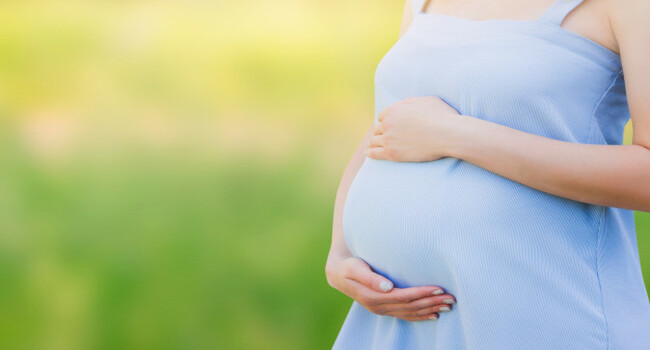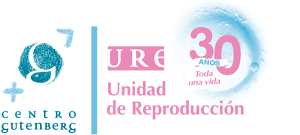Endometriosis and fertility: everything you need to know if you want to become a mother

Painful periods, fatigue, discomfort during intercourse… Do you experience these symptoms? They could be indicators of one of the most common female disorders that can lead to infertility in many cases: endometriosis.
Endometriosis is a benign medical condition which occurs when endometrial tissue, or the tissue that forms the lining of the uterus, grows outside of the uterine cavity, normally extending to the ovaries and fallopian tubes, and very exceptionally reaching the bladder, intestines, lungs…
If your periods are very painful then you may be experiencing the main symptom caused by this condition. The endometrial tissue that grows outside of the uterus triggers discomfort and adhesions, while the most common signs that point to endometriosis are pelvic or abdominal pain during menstruation and intercourse. Sometimes this disorder does not cause any apparent symptoms – it all depends on the stage.
How endometriosis affects fertility
Endometriosis may make it more difficult for you to conceive. In fact, between 30 and 50% of women with this condition are infertile. This percentage is quite high considering it is a disease which affects approximately 10% of women between their first period and menopause.
Endometriosis can have an impact on fertility mainly due to the fact that it affects the functioning of the ovaries, fallopian tubes and the female’s ovarian reserve. A woman will start to lose healthy tissue as it is replaced by endometriosis implants, while her ovarian reserve will decline.
In addition, recent studies have shown that this condition may even affect the uterus, the reducing the likelihood of embryo implantation and, as a result, the woman’s chances of getting pregnant.
How endometriosis develops over time and its impact on fertility
As with many other diseases, there are different stages of endometriosis: stage 1 is the mildest form of the disease and stage 4 is the most severe. Women with severe endometriosis (stage 4) are those who will have the most difficulties conceiving and will almost definitely need the help of assisted reproduction techniques.
All of the above, along with the fact that many women are delaying the age at which they will enter into motherhood, means that the majority of these cases will require the use of fertility treatment such as in Vitro Fertilisation (IVF), for example.
How to diagnose endometriosis on time in order to minimise its impact on fertility
In spite of this situation and the problems it brings about for women who hope to become mothers, fortunately it is simple to diagnose endometriosis. Following an initial consultation with the doctor, an ultrasound may help to determine whether you have endometriosis. Assessing what stage of the condition you suffer from, on the other hand, does require surgery.
In order to ensure that endometriosis will affect the woman’s fertility as little as possible, it is very important that the condition be diagnosed early and accurately. It is also of course essential to not postpone motherhood for too long, as this disorder has the ability to worsen over time.
If you are diagnosed with endometriosis and already want to be a mum, you shouldn’t wait any longer to start trying. Look for good fertility specialists and start taking the necessary steps to get ahead of this disease and prevent its progression from lowering your chances of conceiving.
If, in contrast, you know that you have endometriosis but aren’t yet ready to become a mum, you can preserve your fertility by freezing your eggs to use them in the future, before the disease continues to progress and irreversibly reduces your ability to conceive. Remember that this disease can affect your ovarian reserve and the functioning of your fallopian tubes. Your chances of success when freezing your eggs will depend on your age and the stage of the disease.
If you need assisted reproduction techniques because you suffer from a severe stage of endometriosis that is serious enough to negatively impact your fertility, the treatment indicated by your doctor will depend on several factors such as the stage of the disease, your age and the amount of time you’ve been trying to conceive.
If you have a mild form of the condition you may be able to get pregnant by undergoing one or several artificial insemination treatments. In the event that your stage of endometriosis is moderate, you will most likely require in Vitro Fertilisation treatment. The most severe cases call for egg donation, or IVF treatment with eggs from a donor.
In the face of an endometriosis diagnosis, the most important thing is to not ignore it if you hope to become a mother. If you think you may be suffering from this disease, the sooner you see a specialist the easier it will be to make your dream of having children come true.
Do you have questions or think you may suffer from endometriosis? At URE Centro Gutenberg we can help you reach a diagnosis. Request an appointment with us.

